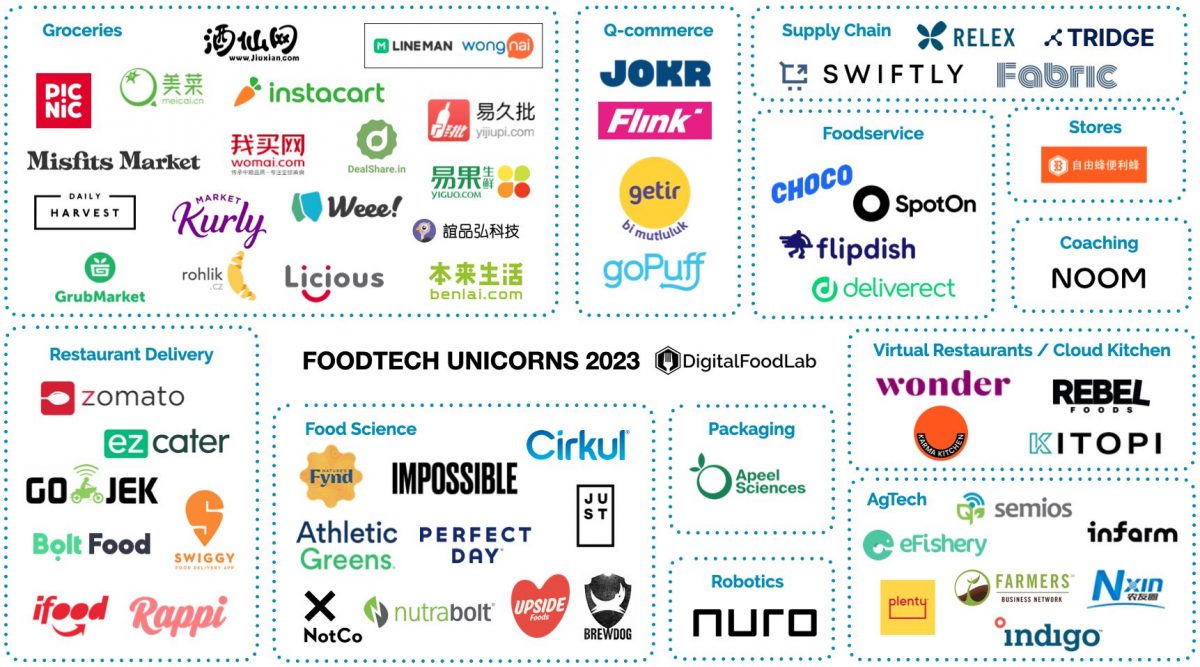As you certainly know, if you read this newsletter (or just any media), things are not going well for startups right now. How does this affect the rarest category of them? To do that, we have just released our yearly FoodTech unicorns report.
First, let’s point out that since last year’s report, 12 FoodTech startups have reached the $1B+ valuation milestone. While this is only 50% of the 23 new unicorns that we identified in 2022, it remains a positive sign that around the world, investors are still heavily betting on the future of food.
What is even more interesting is to look at these 12 companies. They primarily work on digitising both the retail supply chain and the foodservice industry. This is quite a change compared to previous years, where the bulk of the new unicorns were delivery startups. Delivery remains the most well-represented category, with 58% of the “active” unicorns. However, this is nine percentage points below last year’s distribution.

Unicorns have lost some of their mythical status in the past couple of years. Still, these 62 companies can be considered the beacons of any tech ecosystem of tens of thousands of startups. Together, they create a fascinating snapshot of what is happening in FoodTech.
In this year’s snapshot, we can learn many things, notably by comparing it to previous ones (which you can find on our website):
1 – A move toward industrialisation: Alternative protein companies such as Upside Foods and indoor farming startups (i.e. Plenty) are developing their industrial-scale capabilities.
2 – B2B is the new hype: new unicorns have mostly B2B business models, notably SaaS and other digital services. This is entirely different from a few years ago when new unicorns were focused on restaurant or grocery delivery.
3 – We have removed a handful of startups compared to last year’s mapping. Weilong (from China) is the only upward exit with an IPO. Others have less favourable exits.
4 – Finally, a new category of unicorns: we call them “Zombie Unicorns”: these are startups that are still nominally unicorns but which are rumoured to be either on the brink of failure or to have accepted a significant downturn (raising money at a lower valuation).
The idea of FoodTech startups becoming unicorns and then competing with or replacing legacy businesses took a serious hit. The focus changed from hype and valuation to profitability and real-world impact. I think that is mostly for the best. At the same time, new ventures sometimes need absurd valuations to raise enough money to act on their vision and actually change the world. In a word, as the need for a change in the food value chain is ever more urgent, we can expect (and wish) for more FoodTech unicorns to appear in the next few years.







